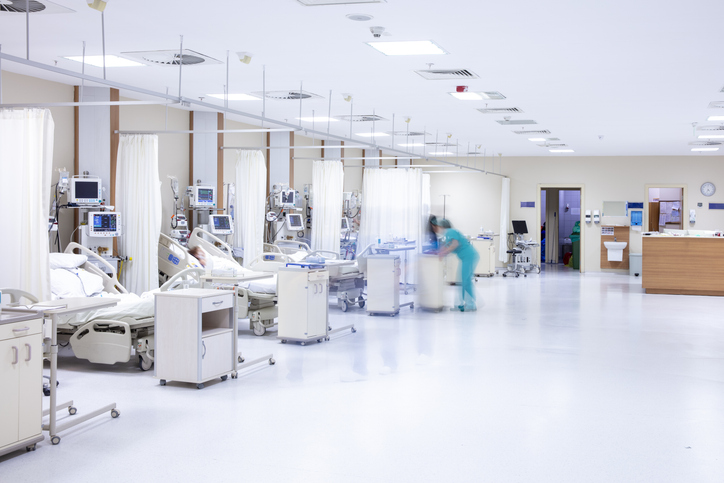Hospital & Medical Facility Relocations: What to look for in a healthcare mover
Healthcare and medical relocations are complex processes. They require meticulous planning, specialized knowledge, and a special understanding of healthcare logistics.
Choosing the right medical mover is crucial. It can make the difference between a smooth transition and a logistical nightmare.
This article aims to guide you through the process. It will highlight what to look for in a medical relocator for hospital and medical facilities moves.
We’ll discuss key factors such as the mover’s experience, certifications, and ability to handle sensitive medical equipment. We’ll also touch on the importance of pre-move planning, risk management, and post-move support.
By the end of this article, you’ll be better prepared to choose a mover that can ensure a successful relocation with minimal disruption patient care and laboratory services.

Understanding the Complexity of Medical Relocations
Relocating a hospital or healthcare facility involves more than just moving equipment from one location to another. It requires an understanding of medical operations and patient needs. The challenge of moving hospitals comes from the delicate nature of medical equipment and the need to ensure patient care continues smoothly during the transition.
Moving medical facilities disrupts not just the physical space but also the hospital’s intricate systems.
A key challenge is ensuring that all equipment arrives operational. Specialized relocators must handle medical devices with care and expertise. Patient safety remains a top priority throughout the process.
Healthcare moves also involve meticulous coordination. It’s crucial that the relocation team collaborates effectively with hospital staff. This ensures that every aspect of the move aligns with hospital operations.
Here’s what makes medical moves complex:
- Involves high-value, sensitive medical equipment
- Requires maintaining patient care during the move
- Necessitates specialized handling and transport
- Demands compliance with strict healthcare regulations
- Involves coordination with various healthcare departments
Each element adds a layer of complexity, making it essential to choose a mover with the right expertise and resources.
Key Factors in Choosing a Commercial Mover for Medical Moves
Selecting the right commercial mover for a hospital relocation is critical. It impacts the continuity of patient care and the safety of medical equipment.
The mover must have proven experience in hospital relocations. Not all moving companies can handle the unique challenges this task presents. Specialized knowledge and thorough preparation are vital.
Here are key factors to consider when choosing a mover:
- Specialized knowledge and experience in hospital moves
- Detailed pre-move planning and dedicated project management
- Expertise in handling sensitive medical equipment
- Strong logistics and coordination skills
- Adequate post-move support and services
A reputable mover will address these elements effectively. Additionally, collaboration and clear communication are essential to the success of the move.
Specializing Knowledge and Experience
Hospital and laboratory relocations require a mover with specific expertise. The company should have a proven track record in handling similar projects.
Experience in the healthcare sector assures familiarity with the nuances of such moves. The mover should understand the unique operational needs of hospitals.
Choosing a mover with specialized skills ensures equipment safety and operational continuity. This expertise results in an efficient transition with minimal disruption.
Pre-Move Planning and Project Management
A successful healthcare move begins with strategic planning. Mover-provided pre-move consultations are invaluable. These meetings set the stage for a well-organized transfer.
Project management is equally crucial. The moving company should assign a dedicated project manager. This manager oversees the move, ensuring tasks are completed on schedule.
Effective planning identifies potential challenges early. It allows the mover to develop contingency plans. With detailed move plans, surprises and disruptions can be minimized.
The project manager acts as a point of contact. This streamlines communication between the hospital and the moving team. It facilitates smoother transitions and quicker solutions to any issues.
Handling of Sensitive Medical Equipment
Handling sensitive medical equipment requires precision and care. The moving company should be equipped to transport all types of equipment.
Specialized packing materials protect equipment from damage. Working with the manufacturers or technicians of specialized equipment is crucial for ensuring the items are up and running without disruption after the move.
Climate-controlled transportation is vital for temperature-sensitive items. Look for movers with the capability to provide such services.
The moving company must also coordinate with IT specialists. This ensures the safe relocation of digital health records and systems.
Logistics and Coordination
Logistical challenges are a significant aspect of hospital relocations. The moving company must handle intricate coordination efficiently.
Collaborating with hospital staff is critical. This ensures operational hours are respected and disruption minimized.
A mover’s ability to coordinate with other service providers, like manufacturers, reps and technicians, is also crucial. This ensures specialized and valuable equipment is disconnected and reconnected smoothly.
An excellent mover maintains clear communication with all parties. This results in timely updates and coordinated efforts throughout the move.
Risk Management and Insurance Coverage
Hospital relocations involve considerable risks. Movers should have a robust risk management plan. This includes strategies for potential contingencies.
Adequate insurance coverage is essential. It protects the hospital from financial losses due to equipment damage.
Movers with comprehensive coverage ensure peace of mind. Ensure that their insurance is sufficient for the value of your medical equipment.
A mover’s commitment to risk management reflects their professionalism. It also indicates their ability to manage complex relocations safely.

Post-Move Support and Services
Support doesn’t end once the move is complete. Post-move services are vital for a seamless transition.
These services might include setting up equipment and addressing arising issues. Prompt post-move support ensures everything functions as intended.
Assistance with equipment layout and workflow optimization is invaluable. It helps in adapting to the new facility smoothly.
A dedicated post-move team offers valuable support. They ensure the hospital is fully operational in the new location without unnecessary delays.
Evaluating a Commercial Mover's Track Record
A mover’s track record speaks volumes about their competence. Thoroughly evaluating their history in hospital relocations can provide valuable insights.
A strong track record indicates reliability and expertise. It demonstrates that the mover has successfully handled similar projects before.
Look for movers with extensive experience in healthcare facility relocations. This experience is a testament to their ability to manage complex and sensitive moves effectively.
Testimonials and Case Studies
Testimonials provide firsthand accounts of the mover’s performance. They offer a glimpse into the experiences of previous clients.
Case studies, on the other hand, detail specific projects. They illustrate how the mover overcame challenges during similar relocations.
Both testimonials and case studies can be useful tools in decision-making. They validate the mover’s claims and highlight their strengths and areas of expertise.
References and Previous Work
Requesting references is another critical step. Speaking directly with past clients can provide deeper insights into the mover’s capabilities.
Ask about specific aspects, like adherence to timelines and handling of medical equipment. This information can be invaluable in assessing the mover’s suitability for your relocation.
Finally, reviewing examples of their previous work helps confirm their expertise. Look for documented instances of successful hospital moves to make a well-informed choice.
Additional Considerations for Facility Relocation
Relocating a healthcare facility involves several nuanced factors. These factors go beyond the standard aspects of moving.
Consider the potential need for temporary storage solutions. Not all equipment might move in one phase.
Energy efficiency and sustainability are also important. Opt for movers that prioritize eco-friendly practices. These practices can benefit both the environment and the facility’s reputation.
Compliance with Regulations and Best Practices
Healthcare moves must comply with strict regulations. Ensure the mover understands laws concerning patient confidentiality and waste disposal.
Also, check their knowledge of industry standards. Familiarity with these standards ensures the move adheres to healthcare norms.
Select movers that follow best practices for safety. This helps minimize risks and ensures compliance throughout the relocation.
Communication and Collaboration
Effective communication is key during complex moves. A mover should maintain open lines of communication at all times.
Collaboration with your internal teams is crucial. It ensures that everyone stays aligned with the relocation plan.
Choose a mover that values stakeholder collaboration. Their willingness to work closely with your team enhances the overall success of the move.
Conclusion: Ensuring a Successful Hospital Relocation
A successful hospital relocation depends on thorough planning and careful execution. Selecting the right commercial mover is critical. It ensures minimal disruption to patient services.
Take into account the mover’s experience and capabilities. Their skill in handling complex, specialized moves is crucial. This will facilitate a seamless transition.
By focusing on communication, past experience and comprehensive support, the move can be smooth and efficient. These elements help hospitals maintain operational continuity and uphold the highest standards of care during the move.
